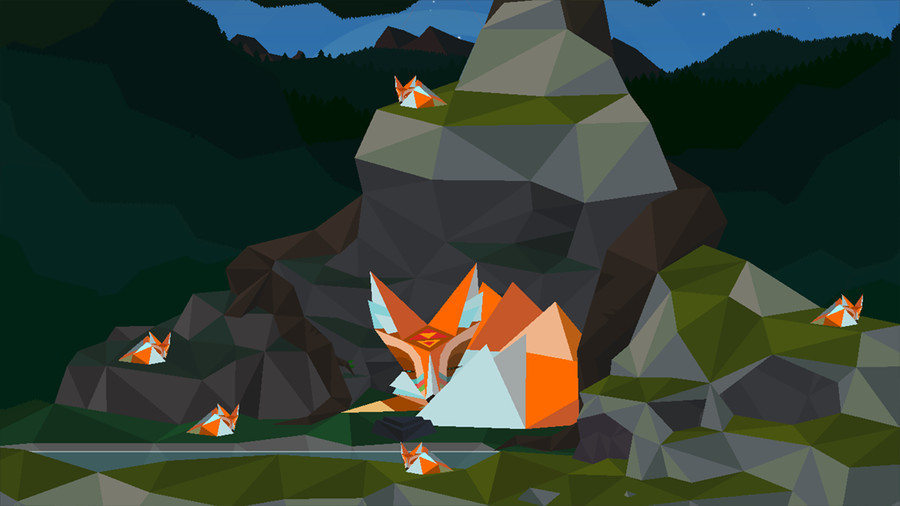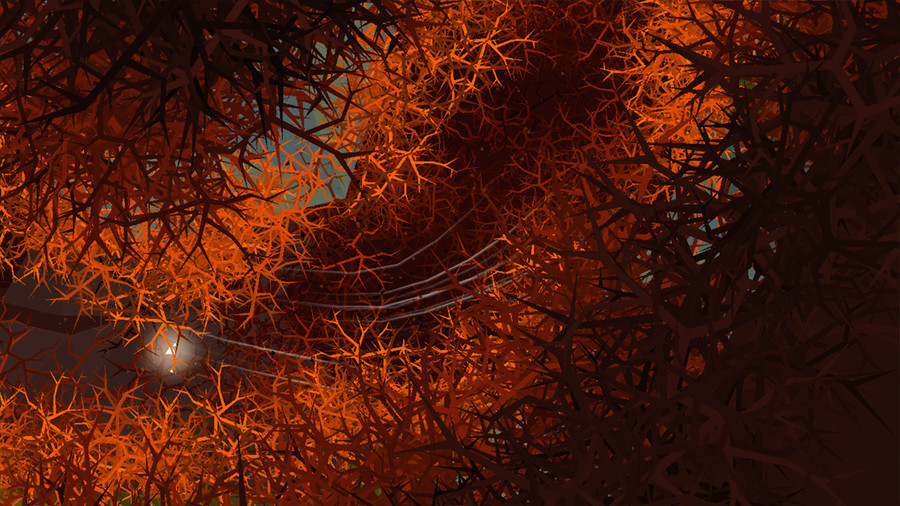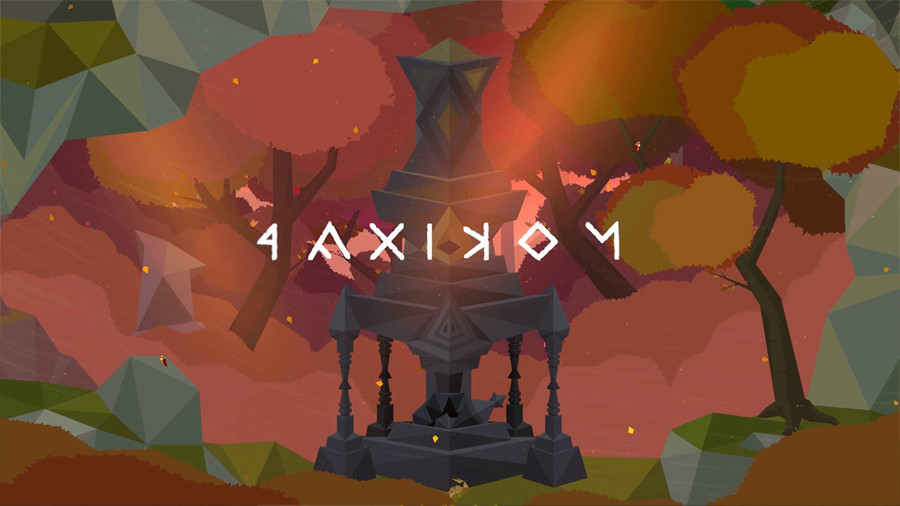
Exhilarating yet tedious, beautiful in a construction paper sort of way, and most of all both ingenious and boring, Secrets of Raetikon is a perfect example of the general state of indie games – inspired, but poorly crafted. I went into this work with no expectations, and no clue what it was, and for the most part, I was impressed and thrilled with what I played. But it’s a far from perfect game, with a pretty crappy ending, and play that can be both really fun and totally infuriating.
In Secrets of Raetikon, you take control of a bird in the mysterious wilderness of the high Alps. This simple premise provides the true beauty of the game: flight and exploration. In a world dominated by platforming and first person shooters, it’s truly remarkable to suddenly be free from gravity and able to flutter and dive through the air. Sure, it’s a 2D experience, and you don’t have that much freedom of movement, but flight in the game is almost an art – and once learned, can soon be mastered, producing an incredible joy.

But you are not alone in the wilderness, and flight becomes boring without purpose. There are both friendly animals to meet and deadly ones to escape from, making for an interesting ecosystem within the game which allows for random beauty and sudden danger. Death is real, though you can gain more health by pulling saplings from the ground and gathering their essence. You can also interact with the environment of the game: rescuing birds, pulling rocks from mountains to start avalanches, and lifting and carrying other objects, which some puzzles are based around.
Most of your time will be spent collecting blue glowing diamonds which hover in the air here and there, which you can then use to power ancient machines that open up new pathways or activate other possibilities. Why is a bird playing with machines? The game never explains. But these artifacts and relics sit waiting for you to awaken them, and through that, the game progresses.
At the center of this world is a great device housing caged animals that you slowly piece together by finding objects to fit into slots on it. You’ll wander the wilderness for these items, and once you find them, have to fly them back through various terrors and obstacles until you get to this central hub, which is also where you return to when you die.

Once you completely open up the device, the game ends, though in a kind of snarky way at odds with the otherwise quiet beauty of Raetikon. However, despite the narrative and thematic failures of the game, control and interaction is pretty tight. That’s sort of the problem with the game – it just isn’t quite fully realized, and the flippant ending kind of punctuates an experience that is both glowing and annoying.
What I haven’t mentioned so far are the so called Raetic Runes. These are secret messages that are decoded by discovering artifacts littered through the environment. There were actual real Raetic Runes that were left among the alpine by the Etruscan people, and while these are inspired by those, the ones in the game are actually in a new language created by one of the developers.
The marketing materials of the game claim the story of this world is revealed through these runes, but that might be an exaggeration. I didn’t decode the runes myself – that would have involved writing the information out on paper and decoding it by hand (a neat experience for people who are interested in that stuff) – but I did visit a Steam forum that listed all the translations. Sometimes profound, sometimes meaningless, but ultimately vague, these runes do little to add to the game for all the time it would take to decode them.

But that’s the thing about Secrets of Raetikon – there is true beauty here to be luxuriated in, but it’s ultimately betrayed by a heady pretentiousness and poor design choices that are guaranteed to leave the player confused and disappointed. I’ve seen the developers defending the ending of the game in the Steam forums, and I still don’t think they get it, or understand the effect their own game has on people – or at least have a totally different point in mind with playing the game than one might assume.
Overall, I really liked the game. If it weren't for these crippling flaws, I would be recommending it to almost everyone I know who likes interactive arts.
















Comments